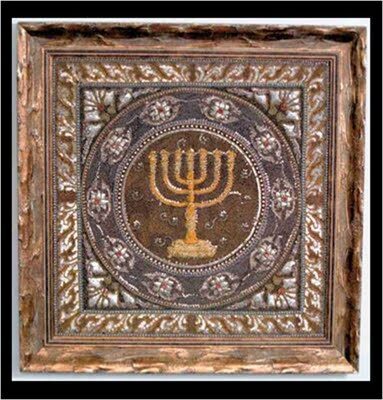The Targumim:
Here we present samples of the Targumim (plural for Targum, which the Goyim refer to as “Targums”) which are Aramaic paraphrases of the Old Testament dating from the 1st c. BC. The Targumim take liberties in paraphrasing texts.
For example, if the Targumist thought that a text spoke of the Messiah they would insert the word Messiah. Below we will consider example of where the Targumim takes the concept of the Word of God (known as God’s Memra or Mimra) and inserts it into the Biblical text.
These paraphrases, these insertions, these changes, are not thought to be malicious corruption but rather, helpful elucidation. The point being that if such works were to be produced by Christians they would be attacked as malicious corruption.1
Gentile scholar Risto Santala explains,
“The Jerusalem Talmud states that the Patriarchs knew only the ‘God of heaven, but God did not reveal to them the Lord’s MIMRA.’ This Aramaic word MIMRA the Rabbis often identified with the Messiah. It corresponds to the Greek logos or ‘word.’ Targum Jonathan says that, ‘My name the LORD I did not, however, reveal to them through my Holy Spirit’_
Of special note in these passages from the Targums is that often the Mimra seems to be identified with the name of God: ‘The LORD’s Mimra will be my God’; ‘I will save them through their God, the LORD’s Mimra’; Abraham was justified through the Mimra; the Mimra gave Israel the Law; Moses prayed to the Mimra; Israel was justified through the Mimra’s instrumentality and the Mimra even created the world_
Professor Gottlieb Klein identified Metatron, used as an epithet for the Messiah, with Yahweh’s Mimra or ‘Word.’ In Klein’s opinion it was precisely this Aramaic word which gave the grounds to the belief that Christ is ‘the Word or Logos of God become flesh.’ The Jewish philosopher Philo, who lived about the same time as Jesus, considered the Logos to be God’s delegate, his emissary and angel who ‘prays as High Priest before God on behalf of the world.’”2
Alfred Edersheim notes,
“The Mimra concept associated with God and his manifestations appears 596 times in the Targums-but not once in the Talmud_Targum Onqelos uses the word 179 times, Targum Yerushalmi 99 times, and Targum Jonathan 321 times. Over half of these references to the Mimra approach it as if it were ‘personified.’”3
It is interesting to note that while the Mimra concept was reduced from 179 to 0. Before Jesus this concept is useful and acceptable but the all of a sudden after Jesus this concept disappears. The timing is very interesting.
“The absence of ‘Mimra’ from the Talmud may be a reaction to the first Christians’ interpretation of it as indicating Jesus. But are there really grounds for understanding ‘Mimra’ to mean the same as the New Testament’s ‘Logos’? In answering this question there is good reason to appeal to the Rabbis’ way of grading the old writings according to their source value:
‘The Old Testament leads to the Targums, the Targums lead to the Mishna, the Mishna to the Talmud, and so on.’ [Sifrei Shoftim, piska 160a] Proceeding in this way the Targums give earlier information on the Rabbis’ exegesis than even the Mishna, the oldest part of the Talmud_
If these ideas are joined to the Messianic expectation, a connection the Rabbis made, they will receive a new significance for Christians too. Although consideration of the Greek logos concept will be left for the New Testament section on the opening verses of John’s gospel, it is worth noting even at this point that a similar ‘word’ theology as that found in connection with the Mimra was in part current among the Essenes of Qumran a little before the birth of Christ.
These sectarians, for the most part former Temple priests, stress in their scrolls that everything received its beginning through God’s deliberate purposing, and ‘without him nothing was made’-‘Through your word everything received its beginning, and without you nothing was made’ [Eg. Megilath ha-serachim 1 QS XI:10 and HH&#b4;dayy&#b4;th 1 QH I:19]”4
The Universal Jewish Encyclopedia,
“LOGOS (Greek for ‘word’), a theological concept found in the Judaism of the period of the Second Temple and in Christianity_
In the Targums the word Memra is introduced in every instance in the Bible in which God is represented as talking to man, thus explaining away all the anthropomorphisms found in the text.”5
In Isaiah the Targum refers to the Messiah as the Lord’s servant in Isaiah 42:1, 43:10, 52:13.
And refers to the Messiah in general in: Isaiah 4:2, 9:5, 10:27, 11: 1, 11:6, 14:29, 16:l, 28:5, 42:l, 43:10, 52:13 and 60:1.

